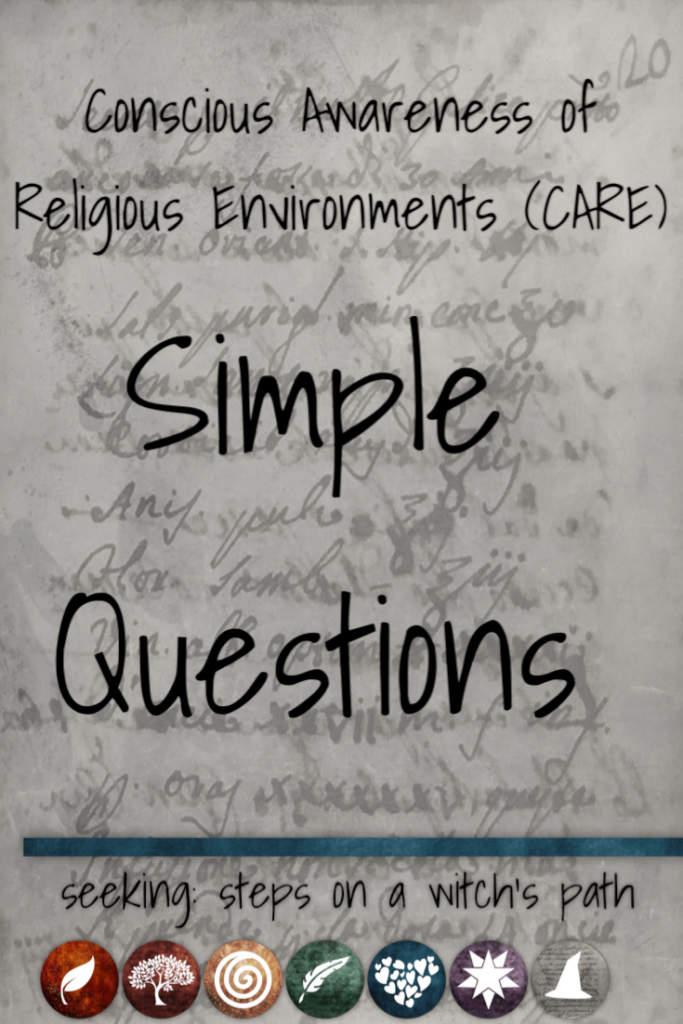A summary of questions to ask yourself about group work.

For background on these questions and further resources, please see the index and explanation.
The important questions
- Does this person, this group, this community, treat you well?
- Do they care for others in the group, and treat them well?
- Do they treat themselves well?
- Does this group’s religious and magical work call to you?
- Does the group challenge you to grow and learn?
- Do they respect your choices and boundaries, and let you know how those fit with their group so you can make informed choices?
- Do you look forward to your time with them?
- Do you wish to become more like them in the ways the group shares?
- Would you feel comfortable inviting them to your home? Why or why not?
- Do they seem centered, balanced, focused on a healthy religious life?
If these things aren’t true, you want to look very closely at this group and the individuals in it to figure out why – and what you can do about it. That’s what this document is for – to help you decide what to look for, and where you should be particularly careful and watchful.
Serious problems:
These include a group or teacher that…
- Tries to control who you talk to, what you read, or how you spend your time outside the group.
- Dismisses, degrades, scapegoats those who don’t agree with them, or alternately plays favorites and rewards some members unduly.
- Expects you to make a decision about joining the group on minimal information, or pressures you to make a rapid decision.
- Wastes group time by showing up late, being unprepared, taking care of personal (non-emergency) tasks during group events, etc.
- Moves from crisis to crisis, or is having trouble keeping up with basic responsibilities (home, work, family).
- Has drastic mood swings or changes of behavior.
- Makes significant decisions suddenly (a matter of hours) rather than after reasoned reflection (when the matter is not urgent.)
- Treats your or other people’s commitments or boundaries lightly (whether that’s your home, your relationships, your time, or anything else.)
All of these things – and the other more specific issues in the deeper questions version – indicate some serious concerns with this group or teacher. Be cautious, thoughtful, and aware!

Last edited December 26, 2016. Reformatted November 2020.



